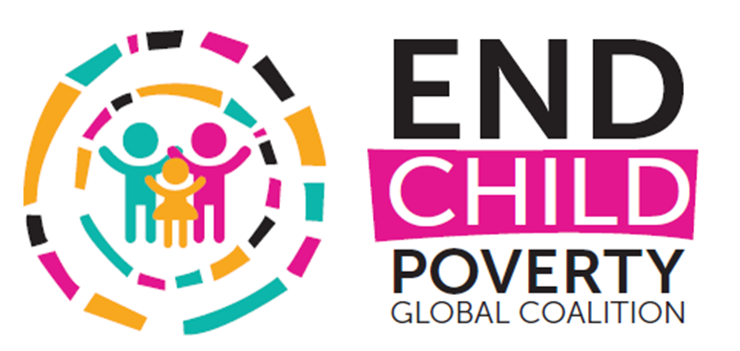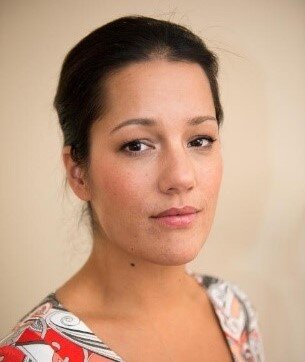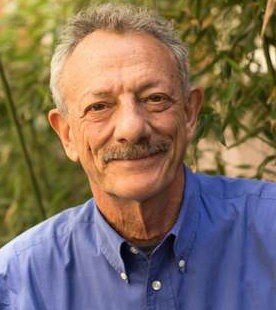In alignment with this year’s IDEP theme, the Global Coalition to End Child Poverty is organizing an online event which will focus on addressing shame and stigma within social protection programming, with a special emphasis on children and families.
Child Poverty in High-Income Countries
Webinar - The New Poor
This webinar aims to explore the profiles of children who have been pushed into poverty due to a crisis, specifically examining the impacts of the Covid-19 pandemic as well as the climate crisis. To achieve this, research from different country contexts will be showcased, including Bangladesh, Georgia, and Uganda.
Webinar - Child Poverty and Climate Change
International Day for the Eradication of Poverty
The aim of this event organized by the Global Coalition to End Child Poverty on IDEP 2023 is i) to launch a Call-To-Action that calls on Governments, businesses and the international community to expand social protection and care systems and promote decent work for adults to address child poverty and ii) to show advances but also remaining gaps in related social protection and care policies across the world.
Webinar - Global Child Poverty Trends
We are only 7 years away from the end of the 2030 Agenda. The global landscape has changed drastically since the launch of the SDGs - we have witnessed unprecedented crises, the climate emergency, the COVID-19 pandemic, increased conflicts, heightened food prices, and inflation, affecting primarily the most vulnerable, including children. It is therefore more than time to take stock of the child poverty related SDG indicators of ending extreme child poverty and halving multidimensional child poverty.
The objective of the webinar is to present the latest global child poverty trends, covering both monetary child poverty and multidimensional child poverty.
Webinar - Qualitative methods to assess child poverty
Ending Child Poverty: A Policy Agenda
Achieving the Sustainable Development Goals (SDGs) and Ending Child Poverty: Exploring Innovative National Solutions
The Government of PDR and UNICEF are organizing an event to highlight the unprecedented increase in child poverty and inequality in the wake of the COVID-19 crisis, and outline the critical need to accelerate and reinforce global and national commitments for achieving the Sustainable Development Goals (SDGs) of ending extreme poverty and halving multidimensional child poverty.
2021 High Level Political Forum Side Event, 7th July 2021
The role of child-sensitive social protection in the sustainable and resilient recovery from COVID-19
Event Date: 7th July 2021, Time: 07:30-09:00 EDT
Register & join the event here: https://us02web.zoom.us/webinar/register/WN_Ewm0MlDWTGqn8bsVQ_EA7A
Save the Children and UNICEF, in collaboration with the Government of Indonesia and Government of Guatemala, are organising a high-level inter-generational dialogue to discuss the role of child-sensitive social protection in the sustainable and resilient recovery from COVID-19, as a side-event to the 2021 HLPF.
The event will facilitate an engaging debate around child-sensitive social protection (CSSP), bringing together children and key stakeholders from various parts of the world in an interactive, inter-generational dialogue. The event will be an opportunity to share good practices, identify new and emerging issues, and discuss how the SDGs can be used as a framework to guide recovery from COVID-19.
Child poverty has sky-rocketed as a result of the COVID-19 pandemic, inflicting devastating damage on children’s development and undermining the realization of their rights, as well as productivity, economic growth, and social cohesion. During the side-event, we will explore the role that CSSP can play in the sustainable and resilient recovery from COVID-19 in order to lift children out of poverty, build human capital, reduce inequality, protect them from future crises, and as a pathway to achieve the SDGs.
Moderators
Andrea Rossi, UNICEF Regional Advisor for Social and Economic Policy in East Asia and Pacific
Andrea Rossi is responsible for leading the regional work on Social Protection, Child Poverty, Governance and Public Finance. He is the former Director of the Measurement and Human Rights Programme at the Harvard Kennedy School of Government at Harvard University where he worked at the Carr Center for Human Rights Policy. He has worked in Mozambique, Nepal, New York and as research Coordinator at the UNICEF Innocenti Research Centre. Prior to that he worked with the International Labour Organisation in East Africa where he was in charge of research and statistics.
He is an economist, with a focus on development and applied research. He teaches Human Rights Public Policy at the Graduate School of Economics and international Relations in Milan, and Applied Research Methods with Hidden and Marginal Population at Nuffield CESS at the University of Oxford. He published, among others, the UNICEF guide Assessing Child Sensitive Social Protection, a toolkit for Social transfer.
Youth Moderator: Luis Miranda, 19, Chile
Luis Miranda Castro is 19 years old and from Chile. More than 5 years ago he began to participate in different voluntary institutions in Chile, in areas such as health, youth and organization. In 2018, Luis entered the children’s network, girls and young people from the Opción Corporation, a network that is organized around the promotion and defence of children’s rights in Chile.
During his participation, Luis was in various forums at the Latin American level and in 2019 had the opportunity to be in the High Level Political Forum of the United Nations, where he was the only representative of Latin America. Luis put on the table the terrible situation that has been experienced and continues in the region regarding migration. Luis is excited to participate in this event, which he considers important to his childhood, and the current pandemic.
Speakers
Kirey, Child Speaker, Indonesia
Kirey is a 17 year old girl from Indonesia, who has recently graduated from high school. She has an interest in economics, and enjoys writing and doing research. Kirey is involved in the student-led organization Bye Bye Plastic Bags, which focuses on reducing plastic waste, and founded Aidvantage, which focuses on providing for economically vulnerable groups during the pandemic.
Thalia, Child Speaker, Peru
Thalia is a 16 year old girl from Peru, who has recently finished high school. Thalia has been involved in participatory budgeting processes in her region of Peru, and in February 2020 she became the Latin American delegate in the Latin American and Caribbean Movement of Working Children and Adolescent Workers, MOLACNATS. Thiala is interested in working on issues to improve the economic situation for girls.
Thilivhali, Child Speaker, Zimbabwe
Thilivhali is a 17 year old girl from Zimbabwe. Thilivhali is a member of the Child Parliament in Zimbabwe.
H.E. Ms. Keila Gramajo, Ministry of Planning of Guatemala
Among the main achievements of the current Secretary General for Planning of the Presidency is the alignment of the National Development Plan with the Sustainable Development Goals of the 2030 Agenda. The national development prioritization has managed to guide the public management of the entire institution to focus on the goals of the sustainable development objectives for the development of the country, through planning instruments.
Among her academic achievements and higher studies are the titles of Internationalist and Economist, specialized in advising on planning and administration of State projects, especially donations and international loans. She also obtained a Master's Degree in Project Management and Management from Universidad del Valle, where she acquired skills to formulate, evaluate and direct different types of projects for national and multinational organizations.
Lina Arbelàez, Director General Colombian Family Welfare Institute, Government of Colombia
Lina Arbeláez is a Lawyer and Political Scientist, with a specialization in Public Law and a master’s in Public Administration. With more than 15 years’ experience in human and territorial economic development contributing to close social gaps and promote human development, poverty reduction and the creation of equality for the most vulnerable populations.
Currently, as General Director of the Colombian Family Welfare Institute, leads the construction of policies and programs to guarantee and protect the rights of children, adolescents, young generations, and families throughout their course of life.
She firmly believes the comprehensive care of Early Childhood as an investment in Colombia’s social and economic development and that adolescents and young people should be the protagonists of the political, social, economic, technological, cultural, and environmental development of the country.
Mr. Nahar, Deputy Minister for Specific Child Protection, Republic of Indonesia
Mr. Nahar is the Deputy Minister for Specific Child Protection, within the Ministry of Women’s Empowerment and Child Protection, Republic of Indonesia. Mr. Nahar holds a Bachelor’s degree in Law and a Master’s Degree in Sociology and Social Welfare.
Inger Ashing, Save the Children International CEO
Inger Ashing is Chief Executive Officer (CEO) of Save the Children International. A respected child rights activist, Inger has been associated with Save the Children for more than 25 years. Prior to her appointment in September 2019, Inger held various national and international roles focused on children’s right, most recently as the Director General at the Swedish Agency against Segregation.
She a member of the Ethics Council at The Swedish Migration Agency and has been an expert to and board member of several authorities and committees such as the Delegation for Human Rights, the Swedish National Knowledge Centre on Violence against Children and the Delegation for the Employment of Young People and Newly Arrived Migrants.
You can follow her on Twitter at @IngerAshing
David Stewart, Chief, Child Poverty and Social Protection, UNICEF
David began his career at the Global Human Development Report of UNDP where he spent 6 years working on the Human Development Reports and indices and researched, wrote and presented Reports on Human Rights, Democracy, the Millennium Development Goals, New Technologies, Cultural Freedom and Development Assistance. Between 2005 and 2010 he worked with UNICEF in New York working initially on State of the World’s Children, and subsequently led the organisation’s work on Policy Advocacy. David spent 4 years as Chief of Social Policy and Evaluation for UNICEF Uganda where he has worked on a range of social policy issues including child poverty, social protection, and public finance for children.
He is currently the Chief of the Child Poverty and Social Protection Unit for UNICEF in New York, where he works on measurement, technical support to country and regional offices and global advocacy in the areas of social protection and child poverty.Recent work includes “A World Free from Child Poverty” a practitioner’s guide to achieving the SDGs on child poverty, “Making Cash Transfers Work for Children and Families” and he is currently working on universal child grants and developing UNICEF’s updated social protection framework. He co-chairs the Global Coalition to End Child Poverty, and holds a degree in Economics from the University of Sussex and a Masters in Development Economics from the University of Oxford.
Alberto Minujin, Senior Fellow, Executive Director, The New School/ Equity for Children
Alberto is professor at The New School University, New York, where he has taught in the Studley Graduate Program in International Affairs since 2005. He is Founding Executive Director of Equity for Children and Equidad para la Infancia, a non-profit working to improve living conditions for poor, marginalized children (www.equityfrochildren.org). A UNICEF Senior Officer from 1990-2005, Minujin is a mathematician with training in Applied Statistics and Demography. His research and teaching focus on child poverty reduction and equity, monitoring and evaluation, human rights and social policy.
Register and join the event here:
https://us02web.zoom.us/webinar/register/WN_Ewm0MlDWTGqn8bsVQ_EA7A
Background resources:
Report: Child Poverty: What drives it and what it means to children across the world
Report: Making cash transfers work for children and families
Policy Paper: Ensuring children’s inclusion in the High-Level Political Forum: Participation and agency to achieve the SDGs
Poverty and the Sustainable Development Goals: From the Local to the Global
In April 2021 the Bristol Poverty Institute (BPI) held a three-day online conference about Poverty and the Sustainable Development Goals: From the Local to the Global as part of the biennial Peter Townsend Memorial Conference series.
Asia-Pacific Forum on Sustainable Development 2021 Side Event, 22 March
Global webinar: Impact of COVID-19 on child poverty in Africa and beyond
Call to Action: Putting children at the centre of Africa’s prevention and response strategies to COVID-19
Are countries committed to ending child poverty by 2030?
Scalable Technology Solutions for Youth Employment
Towards #USP2030: Is It Time for Universal Child Grants?
Addressing Inclusion Among Children & Adolescents Living in Poverty
Creating Pathways to Opportunities for Youth
Save the Children's Youth In Action Final Learning Event
Youth in Action (YiA) is a six year learning and livelihood program. In partnership with Mastercard Foundation, the program has improved the socio-economic status of over 41,000 out-of-school girls and boys in rural Burkina Faso, Egypt, Ethiopia, Malawi, and Uganda. YiA provides foundational skills and training to help young people find safe, viable, and sustainable livelihoods for a better future. The program is designed to achieve its goals by using participatory facilitator-led sessions, real world practice, and positive interaction with peers and community mentors.
From May 23-24, 2018, YiA program teams, as well as development partners, government stakeholders, and donors came together to celebrate YiA in Kampala, Uganda. Building on YiA’s extensive research and learning from all five countries, the learning event allowed participants to connect and learn about how youth livelihood programs are leveraging resources and opportunities to enhance the socio-economic status of young people in rural Africa. Participants were also inspired to act through the words of YiA’s beneficiaries, who told the audience first-hand about their successes.
NTV Uganda, one of Uganda’s leading television stations, was a key communications partner for the event, and devoted its entire morning show to bringing the event’s message to a national audience. During this opportunity, Samuel Mukirane, Save the Children Uganda Regional Western Area Manager, and Stanley Phiri, Deputy Director, Save the Children Malawi, spoke in depth about Save the Children’s work, the YiA program and the needs of rural, out-of-school youth in all five countries. This discussion highlighted the need for programming to address the gender barriers that girls and boys face in accessing education, livelihood opportunities and access to financial services.
Event attendees heard directly from Ugandan youth, who challenged the audience to see the potential in youth and to work with them to prepare them for successful futures.
Through YiA, Save the Children has reached thousands of hard-working youth. Event attendees heard directly from three inspiring Ugandan youth, who challenged the audience to see the potential in youth and to work with them to prepare them for successful futures. Attendees also heard the stories of youth in Burkina Faso, Egypt, Ethiopia and Malawi, such as Diarra. Diarra, from Burkina Faso, had never had the chance to go to school. Through YiA’s work to address gender barriers leading to early marriage, Diarra gained foundational skills and started her own business before her marriage. Hana’s story presents a different challenge – high rates of female migration in Ethiopia. Through YiA, Hana received the skills and knowledge that allowed her to stay in her community.
Diarra - Burkina Faso
For the past six years, YiA has illustrated the importance reaching youth such as Diarra and Hana through holistic programming and multi-sectoral collaboration. Youth from all five program countries have found success and are challenging themselves and their communities. Save the Children is also working to leverage YiA’s research and learning in future programming. For example, YiA is highlighted as a key program case study in the new Save the Children Common Approach Life Skills for Success, including being promoted as an adaptable model for work with rural young people. Therefore, while YiA’s programmatic lifespan was a “quick” six years, its legacy is set to continue.
































